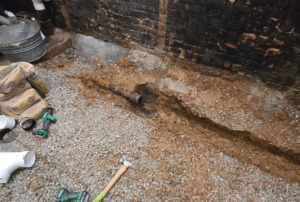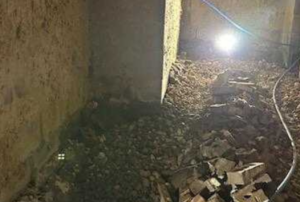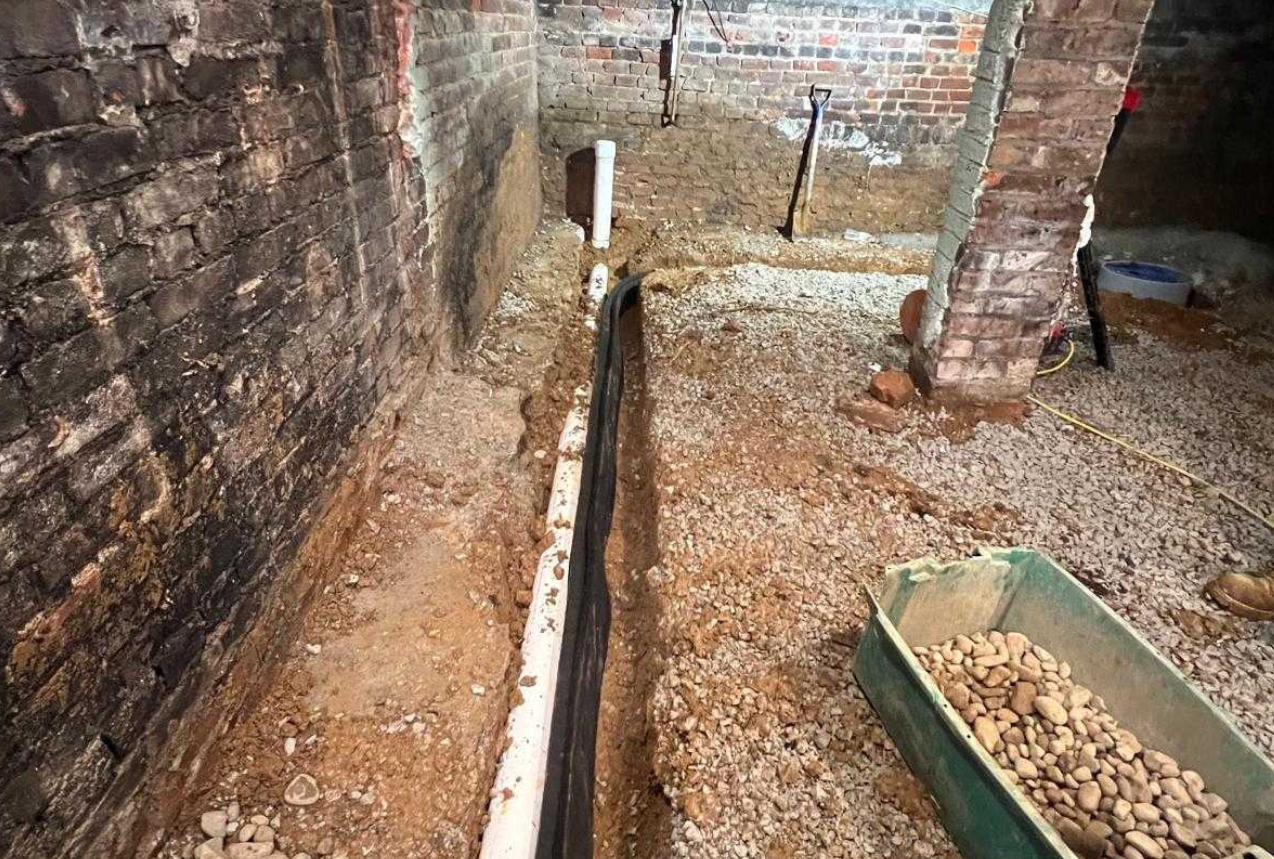After a big rainstorm, many homeowners in Kentucky and Southern Indiana walk downstairs only to find a wet basement. The smell is off, the walls feel damp, and belongings might even be soaked. This is more than a nuisance, it can lead to long-term damage and expensive repairs.
If this keeps happening at your house, it’s time to take a closer look. Let’s break down why it’s happening and how to fix it.
What Is Basement Water Intrusion?
Water intrusion happens when rainwater enters your basement through the walls, floors, or foundation. It may show up as damp patches, puddles, or a strong musty smell. Water usually gets in through cracks, floor joints, or small openings you may not even see.
In areas like Kentucky and Southern Indiana, wet basements are often caused by soil conditions, poor grading, and heavy rainfall, all things that work together to send water toward your home.

Why Your Basement Gets Wet After It Rains
1. Sloped Ground or Poor Yard Drainage
If your yard directs water toward your home instead of away from it, that rainwater will collect near the foundation. Over time, this water starts seeping into the basement.
Solution: get a grading and drainage solution to help move water away before it can cause trouble.
2. Pressure from Water in the Soil
After long or heavy rain, water builds up in the soil around your home. That water creates force that presses against the basement walls. This pressure can lead to cracks or even push the walls inward.
Solution: get a wall stabilization systems and interior waterproofing that helps relieve the pressure and protect the structure.
3. Foundation Cracks
Cracks can form from soil movement, aging structures, or ongoing pressure. Once a crack forms, water will continue to flow through it during every storm.
Solution: repairs foundation cracks and install pier system foundation support to fix the root cause and strengthen your home.
4. Sump Pump Problems
Without a working sump pump, or with no pump at all, water can build up and flood the basement. This is common in homes with older systems or power outages during storms.
Solution: installation of reliable sump pump systems, including options with backup batteries.
5. Gutter or Downspout Issues
Clogged or broken gutters and downspouts can push water right next to your foundation. From there, it doesn’t take much for it to get inside.
Tip: Make sure your gutters are clean and pointed at least six feet away from your home.
Leaving a wet basement alone leads to mold growth, wood rot, and damage to anything stored downstairs. You might even start to see higher energy bills due to increased humidity or weakened insulation. For families planning to sell their home, moisture issues can scare off potential buyers fast.
What KCS Can Do to Help
At KCS Foundation and Waterproofing, we don’t believe in one-size-fits-all fixes. We offer a free inspection to figure out what’s really causing the issue. Then we recommend specific solutions based on what your home actually needs.
Here’s what we offer:
- Interior and exterior waterproofing
- Foundation repair using pier systems, crack filling, or wall replacement
- Grading and drainage solutions
- Sump pump installation
- Crawl space encapsulation to stop water coming from underneath
We’re a local company that understands Kentucky and Southern Indiana weather and soil. Our work is backed by lifetime transferable warranties, and we don’t use pressure tactics.

If you want to get solutions to all the issues mentioned above, KCS offers a large range of basement solutions. You can check our services and get a free quote here.
FAQ: Wet Basements After Rain
How can I tell if my basement leak is from rain or plumbing?
Timing is usually the best clue. If water only shows up after storms, it’s probably from outside. If it’s constant or appears when no rain has fallen, it could be a pipe issue.
Does home insurance cover water damage from rain?
Most standard policies don’t include damage from outside water unless there’s a sudden event. Check your coverage or ask your insurance provider for flood protection options.
Can I waterproof my basement on my own?
You can seal small cracks or adjust downspouts, but serious issues like wall pressure or water seeping through the floor need professional help. DIY jobs usually don’t last long.
How long does professional waterproofing take?
Simple repairs may take one day. Larger projects with excavation or multiple fixes can take several days depending on the problem and the home’s structure.
What’s the best season to get this work done?
Spring and summer are easier for outdoor work. But if you’re already seeing moisture, it’s best to fix the issue now instead of waiting for the weather to change.
Ready to protect your basement? Call KCS or request a free estimate today. Stop the leaks before they lead to bigger problems.

